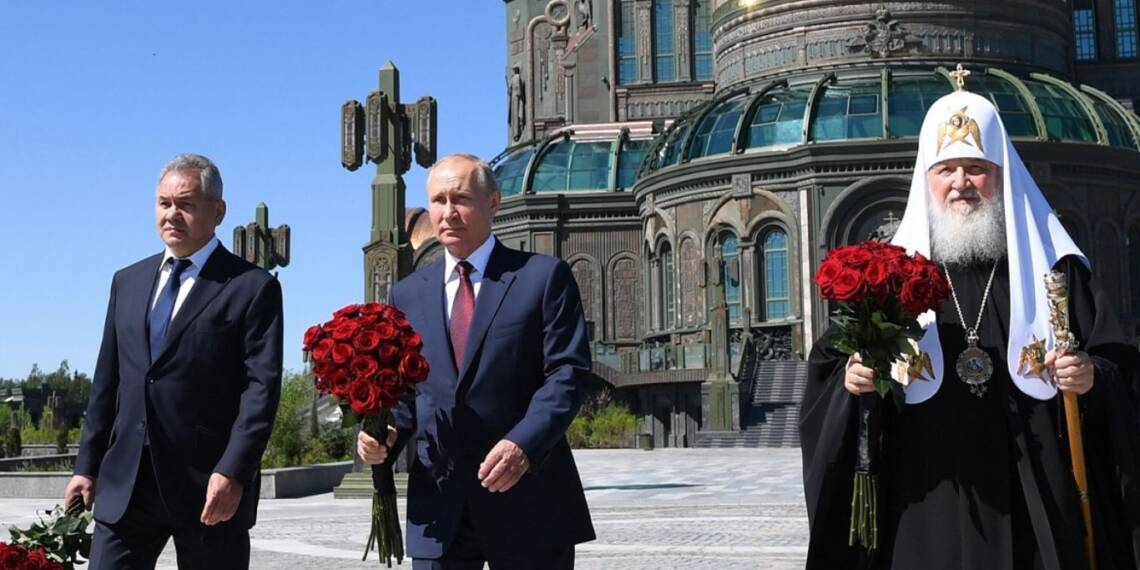On January 23, legislation approved by the Estonian government could ask Religious organizations in the country to cut all ties with the Russian Orthodox Church (ROC), informed by Interior Minister Lauri Laanemets told local media. Previously, Ukraine too had brought legislation that banned the Moscow-linked Ukrainian Orthodox Church (UOC) and also raided the historic Kyiv Pechersk Lavra monastery over its ties to the Moscow Patriarchate in 2023.
The Russian Orthodox Church (ROC), based in Moscow, is one of the largest and most influential branches of Eastern Orthodoxy. Historically, it has played a significant role in Russian cultural and political life. Many Orthodox Christian communities in former Soviet states, including Estonia, remain under the jurisdiction of the Moscow Patriarchate. This means their leadership and religious directives often align with or depend on Moscow’s authority. But this does not mean that the ROC is working for Russia or undermining the national security of Estonia.
Minister Laanemets submitted the new amendment to the law on churches and parishes to the EU country’s parliament. If it is accepted, the Estonian Orthodox Church (EOC) and other religious organizations and societies will have two months to amend their charters, board composition, and operations to conform to the new law.
Action in Estonia
The bill was attached with an explanatory letter which reads that all religious organizations in Estonia must “exclude leadership by a person or association with significant influence and located in a foreign state if it poses a threat to the security, constitutional order or public order of the Estonian state, supports military aggression or calls for war, a terrorist crime or other illegal use of armed force or violence.”
The interior minister Laanemets stated that the initiative was “necessary” due to the Orthodox Church’s canonical ties to the Moscow Patriarchate, which is “the most important instrument of influence for Russia and the Kremlin in Estonia,” and that this “must be stopped.”
If Orthodox Christian monasteries in the nation didn’t break their links with the ROC, Laanemets threatened to close them last year. He added that he was getting ready to submit a motion to the Estonian parliament that would formally designate the ROC as a terrorist group and outlaw its operations within the nation.
Previously, the Estonian Orthodox Church announced that the organization did not want to unilaterally cut its canonical ties with the Moscow Patriarchy. In the argument, it said the ROC has not done anything that would force canonical ties with the Moscow Patriarchy.
However, the Council of the EOC of the Moscow Patriarchate authorized a change to its charter in August, which eliminated the reference to the Moscow Patriarchate from the church’s name. At the time, Laanemets asserted that Moscow still held sway over the EOC and said that this was insufficient.
Russia has strongly denounced Estonia’s attempts to break the EOC’s ties to the ROC and pass legislation that would limit the ROC’s activities, accusing the Estonian government of violating religious freedom, discriminating against Orthodox Christians, and meddling in religious matters.
Also Read: Putin readies his response to 300$ billion “theft”, plans to seize West’s assets
Singling out organizations tied to a particular religious denomination, such as Orthodox Christianity under the Moscow Patriarchate, could appear to target a particular religious group, thus creating the perception of intolerance. It may alienate members of the Russian-speaking minority in Estonia and make societal divisions worse.
The orthodox church is being targeted by the EU, as it is based on its relation with the Russian Orthodox. This means that the EU is targeting organizations based on religion which is against the basic principle of religious tolerance mentioned in Article 10 of the EU.








